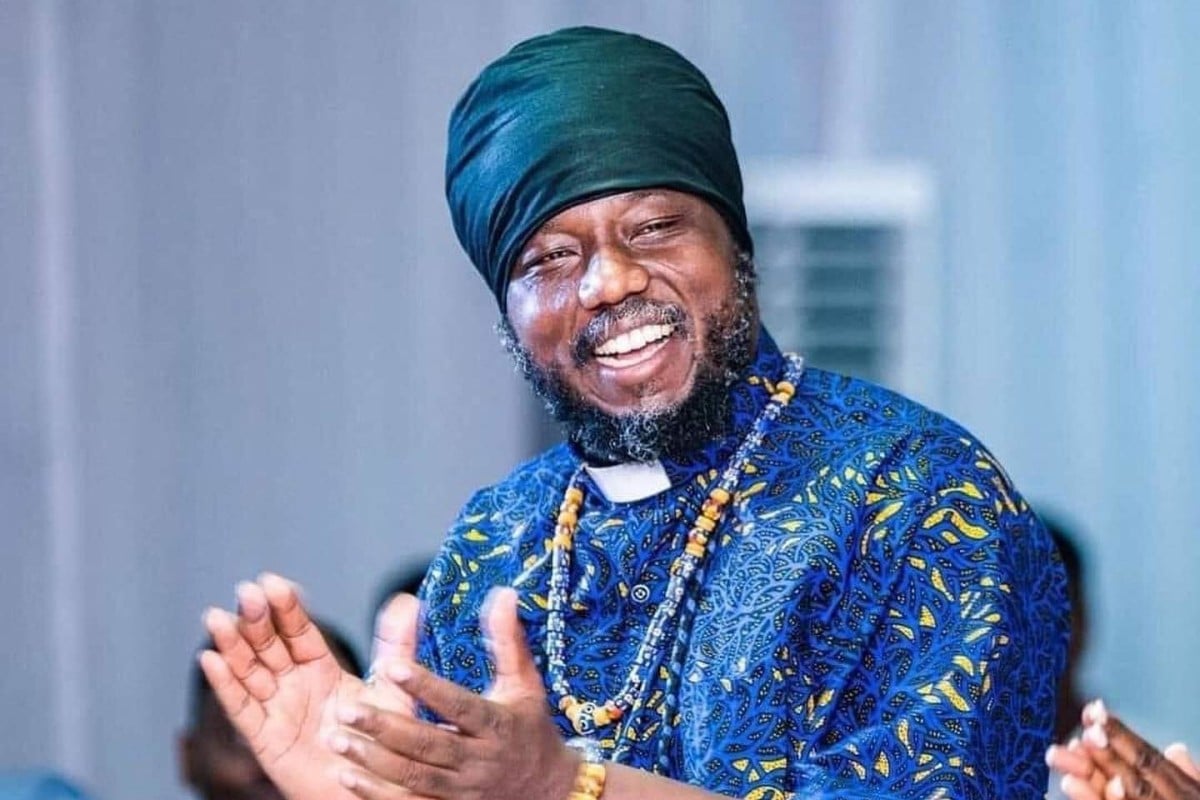Blakk Rasta: ‘Salaga Soljah’ Album Review

Ghanaian reggae artist Blakk Rasta’s Salaga Soljah could be the dark horse, an unexpected and lesser-known contender in the Western Hemisphere who could surprise many when the Reggae Grammy nominees are announced on November 8.
Released on February 20, this 20-track album, which is being considered for a Best Reggae Album Grammy nomination, stands out as the only African project in contention for the prestigious award.
Blakk Rasta masterfully fuses the ancient sounds of Africa with authentic Reggae, spanning one-drop Reggae and Nyahbinghi, the foundation of the genre. The album’s instrumentation is rich, featuring Nyahbinghi Reggae staples such as the kette, funde, and bass drums, alongside traditional African instruments like such as bamboo flutes, calabash, the djembe, and the xylophone.
Although Blakk Rasta may not yet be a household name in Jamaica or the wider Western Hemisphere, his 12th full-length album showcases a depth of artistry that is bound to capture the attention of authentic Reggae lovers. His vocal style, rhythmic structures, harmonies, and instrumentation will resonate with fans of traditional Reggae, offering what has been absent in much of today’s music. Those craving a return to genuine Reggae will find much to appreciate.
Salaga Soldier transcends language barriers, with its tracks recorded in ten different languages, including Jamaican Patois, English, French, his native Dagomba, Dioula (spoken primarily in Ivory Coast), Hausa, Akan, and Ethiopia’s Amharic, the language of Emperor Haile Selassie I.
The standout track, Sodom and Gomorrah, is particularly powerful, channeling the spirit of Peter Tosh as Blakk Rasta calls upon Jah to rain fire and brimstone on corrupt leaders, child abusers, and other wrongdoers. His message is clear: these people are worse than the inhabitants of the two biblical cities which were destroyed for their sins.
Put Down the Arms echoes the hook of Bob Marley’s Chant Down Babylon and is a passionate call for peace. Blakk Rasta also reimagines two Jamaican classics: Jacob Miller’s Tenement Yard and Eric Donaldson’s iconic Cherry Oh Baby, adding his own cultural twist.
The Tenement Yard sample is featured on Barber Shop, which is a collaboration with Reggae/Dancehall legend Anthony B. That song humorously delves into the happenings in barbershops, with both men declaring they will never enter a barber shop due to the shaving, cutting, and gossip.
Eric Donaldson’s 1971 festival song Cherry Oh Baby is beautifully reinterpreted as Adisa, not in English, but in Blakk Rasta’s native Dagbani. In the allegorical song Bua (Swahili for “Goat”), Blakk Rasta warns the goat to be wary of the wolf, reminding it that its parents, careless of the danger, had ended up in the wolf’s pot. The message is clear: don’t repeat the mistakes of the past.
Four tracks on the album—Haile Haile Haile, Kokroko, Le Pain De Dieu, and Sochandiba—are rooted in Nyahbinghi Reggae, further cementing the album’s authenticity. Blakk Rasta also tackles political issues in Thief President, condemning African leaders who cling to power while their people suffer, and flee to Europe for medical care while neglecting their own countries’ healthcare systems.
In Ohba Ohba Generation, he goes a step further, urging young people to rise up and oust corrupt leaders, but cautions them to have a clear plan for the future.
The four years Blakk Rasta spent crafting Salaga Soldier were well worth it. The album is a testament to the enduring vitality of authentic Reggae. It is a treat for Reggae lovers worldwide, irrespective of the languages in which the songs are sung.
